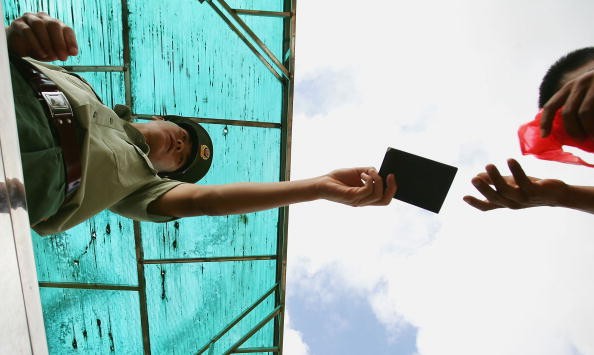Police officers in southwest China have arrested a man for selling lost identification cards online, highlighting a gray area of China's ID card law that allows lost cards to still be used.
The suspect, surnamed Yang, told police in Suzhou, Jiangsu Province, that he had profited more than 20,000 yuan ($2,900) by illegally trading 200 lost and stolen ID cards from July 2016 to Feb. 2017, the Yangtze Evening Post reported on Sunday.
Yang bought the ID cards for 50 yuan apiece and resold them for up to 400 yuan, the report said.
Information can still be taken from microchips in ID cards even after they are reported lost by the owners, and unlike a bank card they cannot be canceled, Yin Ji, a policeman at the Hudong police station in Suzhou, told the Yangtze Evening Post.
"It is a blind spot, that many think their ID is safe after reporting the loss," Yin explained, adding that a lost card could open their financial and banking information to access by criminals.
Many suspects hide their real identity and escape inspection with bought ID cards, he added.
Yang said the most popular IDs are those born between 1970 and 1980, as many netizens' ages fall within that range.
Suzhou police arrested Yang in his residence after receiving a tip and discovered 122 ID cards, four smartphones and several bank cards.
According to Chinese law, anyone who fakes, buys or sells ID documents, including passports and driving licenses, could face up to seven years in prison, fines, and deprivation of their political rights.
People who use fraudulent IDs will also be fined up to 1,000 yuan or jailed for no more than 10 days.
People have poor awareness regarding personal information security, one of the reasons why the black market for ID cards is thriving, Yin said.
Loose inspection from the government also offers opportunities for suspects to falsely use ID cards, he added.



























